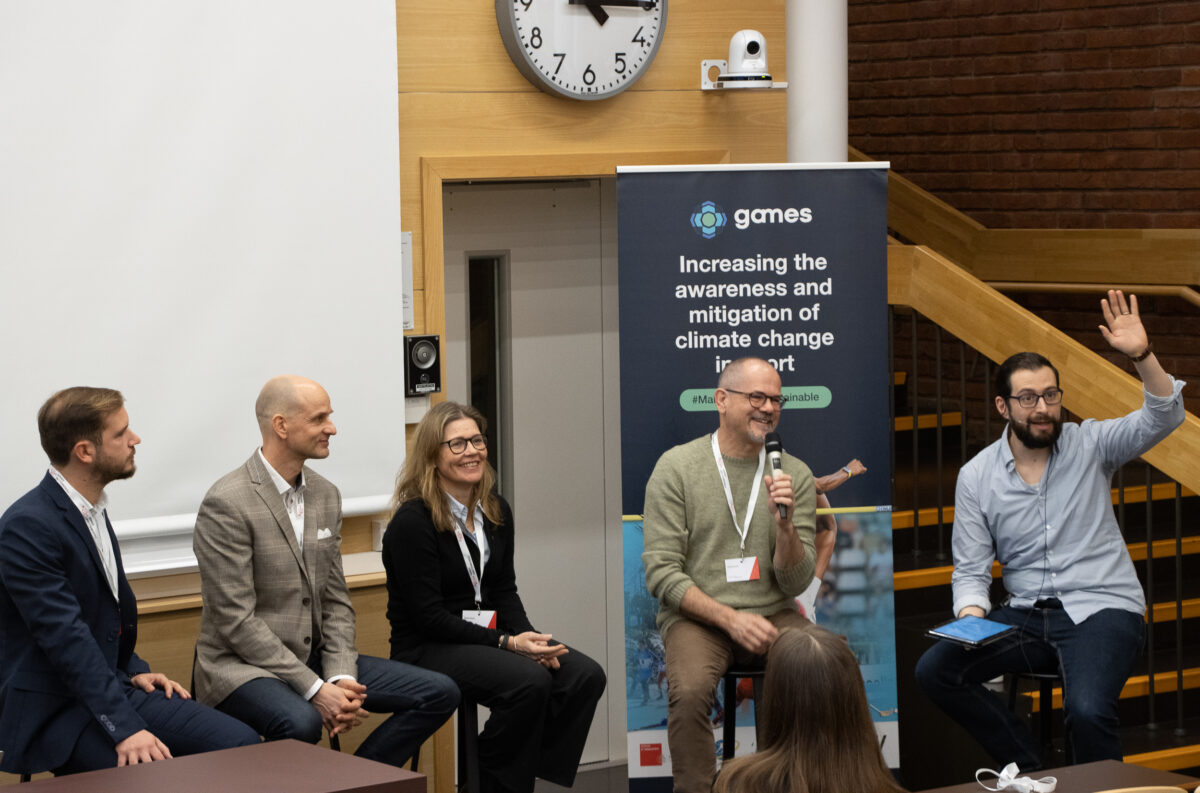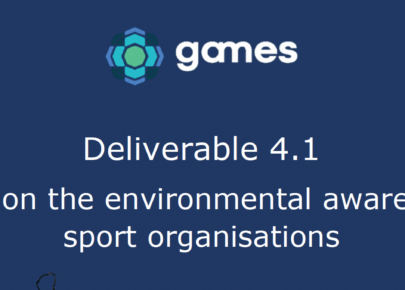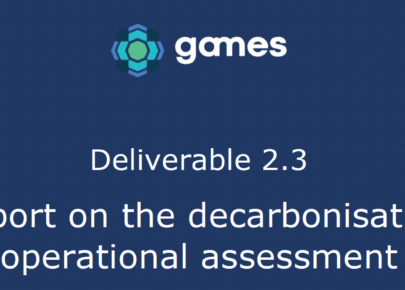#MakingSportSustainable Conference explores climate action in sport
Ways in which sports organisations and event hosts can embed decarbonisation practices in governance and operations was the key topic at the #MakingSportSustainable Conference in Oslo.
Hosted at the Norwegian School of Sport Sciences (NIH) on 29 February 2024, the event served as the mid-term conference for the Erasmus+ funded GAMES project, which is exploring how sport can take a more active and holistic approach to climate action.
Panels and keynote talks at the day-long conference reflected on the activities and achievements of the project so far, while providing a platform for related projects and pieces of research.
Tiberio Daddi, association professor at the Sant’Anna School of Advanced Studies, the GAMES project’s technical partner, kicked off the conference by showcasing some of the key milestones of the project, including the creation of a best practices database and the first-ever environmental footprint calculation of a multi-day sports event at the World Mountain and Trail Running Championships 2023 in Innsbruck, Austria.
Following that, a panel that included Riikka Rakic (International Biathlon Union), Tero Kalsta (International Floorball Federation), Bob Ramsak (World Athletics) and Alessio Novi (Sant’Anna School of Advanced Studies), gave delegates an understanding of how they embed sustainability in sports governance.
Novi provided some insight into on-site visits he conducted and some of the good practices he found, while Ramsak described the development of his federation’s Athletics for a Better World Standard. Rakic explained that sustainability has become a pivotal aspect of the IBU’s overarching organisational strategy, while Kalsta talked about collaborations and getting internal buy-in.
The subsequent panel took us from governance to implementation, with sustainable operations at sports events the key talking point. Novi was joined by fellow panellists Amanda Emet (Swedish Floorball Federation), Steinar Hoen (Bislett Games), Stefan Marx (Holmenkollen Ski Festival) and Gunhild Kvistad (Norwegian Biathlon Union).
More sustainable approaches to energy, mobility, snow production and maintenance, procurement, food and beverage, and partnerships formed the core of the conversation.
A local Norwegian perspective on sustainability in sport was then explored through one panel and a keynote speech.
During the former, Gabrielle Bjørnstad-Northern of the Norwegian Triathlon Federation demonstrated her organisation’s approach to adopting the UN Sustainable Development Goals. On the same panel, Chris Horbel and Josephine Traberg (NIH) touched on some of their research on the topic.
Traberg explained the importance of integrity when it comes to communication about sustainability in sport, while Horbel, using the 2025 Nordic Ski World Championships in Trondheim, Norway, as an example, explored whether sports events could be used as engagement platforms for sustainable development.
To bring the conference to a close, Ørnulf Seippel delivered initial findings from his embryonic research exploring how sport can move from climate knowledge to climate action.






